U.N. UNFIT FOR PURPOSE: INTERNATIONAL MARITIME ORGANISATION
28.06.2022
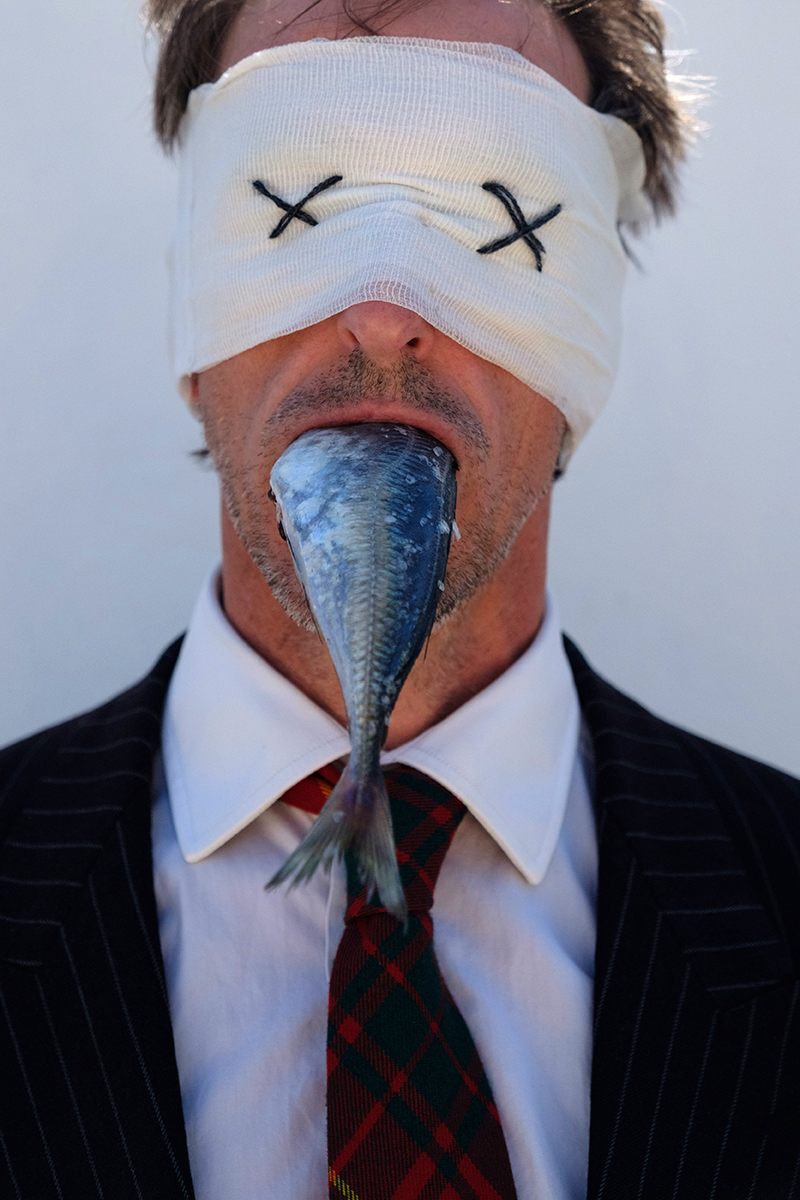
THE UN INTERNATIONAL MARITIME ORGANISATION (IMO)
The IMO continues to ignore its UN remit by setting minimal goals for the ‘prevention of marine and atmospheric pollution by ships’.
By allowing ships to burn HFO the IMO is significantly increasing shipping’s contribution to CO2 emissions rather than reducing them in line with the Paris Agreement. Furthermore black carbon from burnt HFO falls as soot and makes the ice caps absorb more heat and melt, further accelerating the terrifying feedback loops of planetary heating which threaten all our lives.
Black carbon is especially dangerous when emitted by ships in the Arctic. IMO has been discussing rules for black carbon for more than a decade and the best they have to show for it is a commitment for a voluntary switch to cleaner fuels. The shipping industry has shown themselves incapable of self-regulation and are putting countless lives at risk. The time is now for a binding rule to tackle this potent source of climate heating.
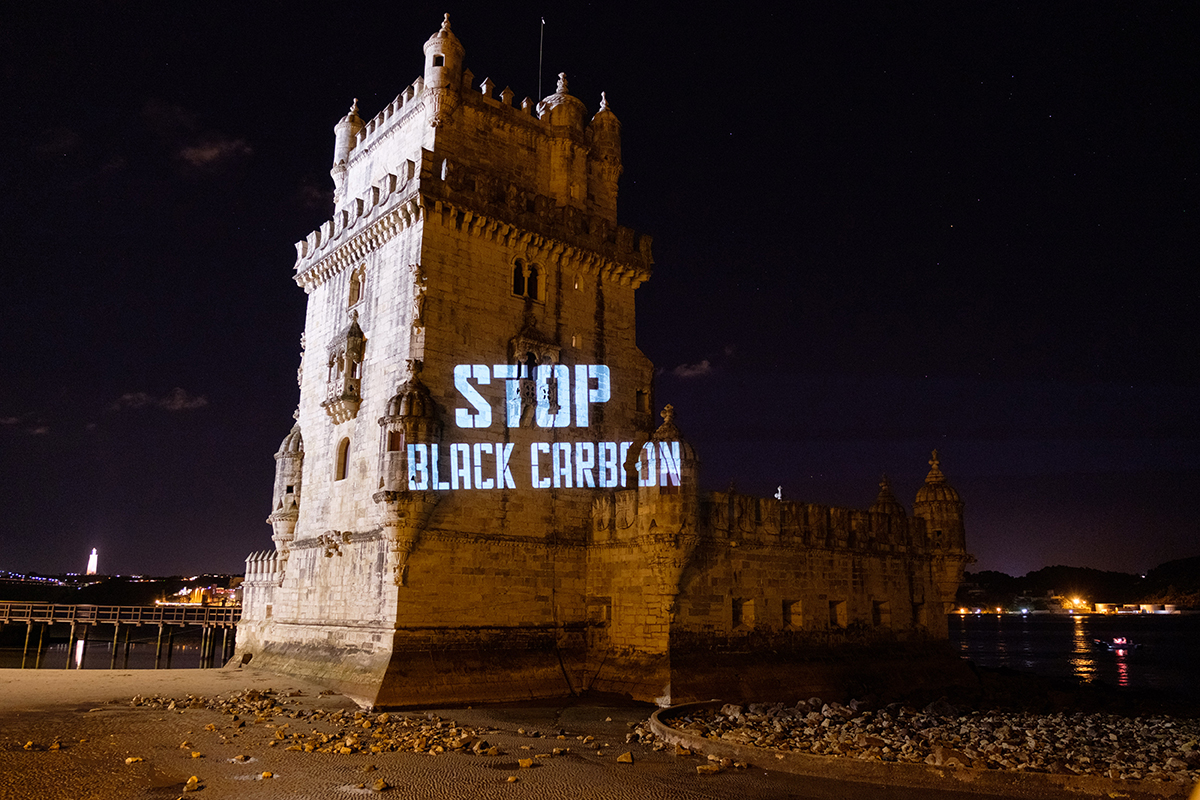
Plastic nurdles and ghost fishing nets
Plastic ‘nurdles’ and pellets are products of the petrochemical industry, they are shipped all over the world and form the basis of all plastic products. Any plastic product you buy starts life as a plastic ‘nurdle’ or pellet.
Plastic ‘nurdle’ or pellet pollution is a significant form of Ocean microplastic pollution. Its devastation can be seen in large-scale disaster incidents such as the X-Press Pearl (2021) or Trans Carrier (2020). But there’s also lots of chronic leaks and spills that take place at each and every stage of the shipping process. The evidence of these chronic leaks can be seen in the high proportion of pellets found in microplastic samples in harbours.
Abandoned and lost fishing gear, also known as ghost fishing nets, make up about 50% of the marine plastic debris in the great pacific garbage patch and ⅓ of marine litter in European seas. An estimated 5.7% of all fishing nets, 8.6% of all traps and 29% of all lines are lost to the world’s Ocean annually, where it tangles marine wildlife and leads to a needless loss of marine life, including protected species.
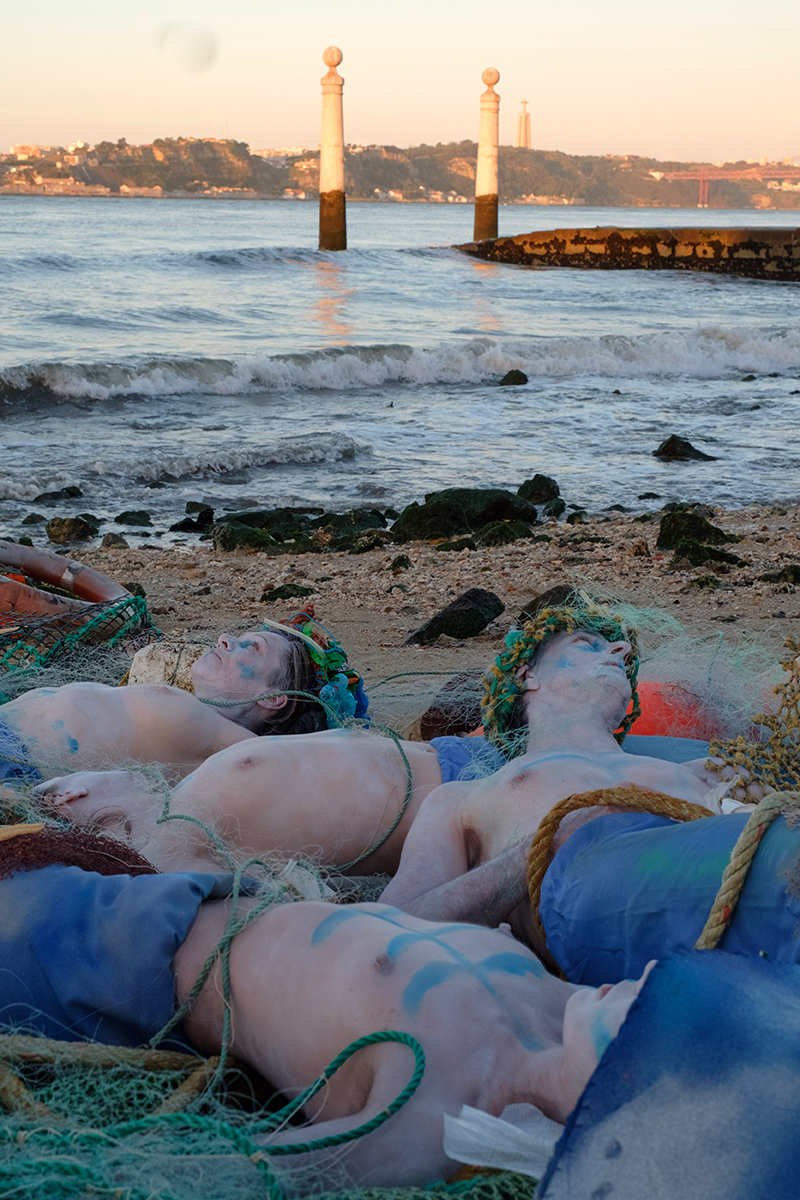
Dirty Carbon Scrubbers
Not only is the IMO greenwashing the plastics industry, it’s also proposing ‘scrubbers’ to do the same for ships. These scrubbers stop the worst pollutants from HFO entering the atmosphere: that’s good right? Well not if the scrubber turns it into an acidic solution and pumps it into the Ocean. So instead of polluting the air the IMO is now aiming to pollute the sea – that’s surely the definition of greenwash!

The fate of the Ocean depends on us all.
Our interventions depend on support.
Liquid Natural Gas, the facts
LNG is a fossil fuel that, when burnt as a marine fuel, leaks methane into the atmosphere – a dangerous global-warming gas that is over 80-times more climate-warming in the short-term than carbon dioxide.
The UN’s Intergovernmental Panel on Climate Change (IPCC) identified rapid methane emission cuts as one of the top priorities in order to limit global warming to 1.5°C as much as possible. The IPCC’s latest report focusing on climate mitigation makes clear that fossil gas in the form of LNG is not a solution for shipping’s decarbonisation.
Contrary to what climate science says, shipping and port companies have been investing heavily in fossil LNG over the past years, claiming that the fuel will reduce their environmental impacts and climate pollution. There are currently over 785 new cargo ships on order globally, with over 400 being built to run on fossil LNG.
Burning more fossil LNG onboard vessels is a disaster in the making for our planet. It would only increase methane emissions from ships, which already rose by 150% between 2012 and 2018, according to the UN International Maritime Organisation (IMO). If the IMO is saying this itself why is it allowing shipping to navigate towards LNG?
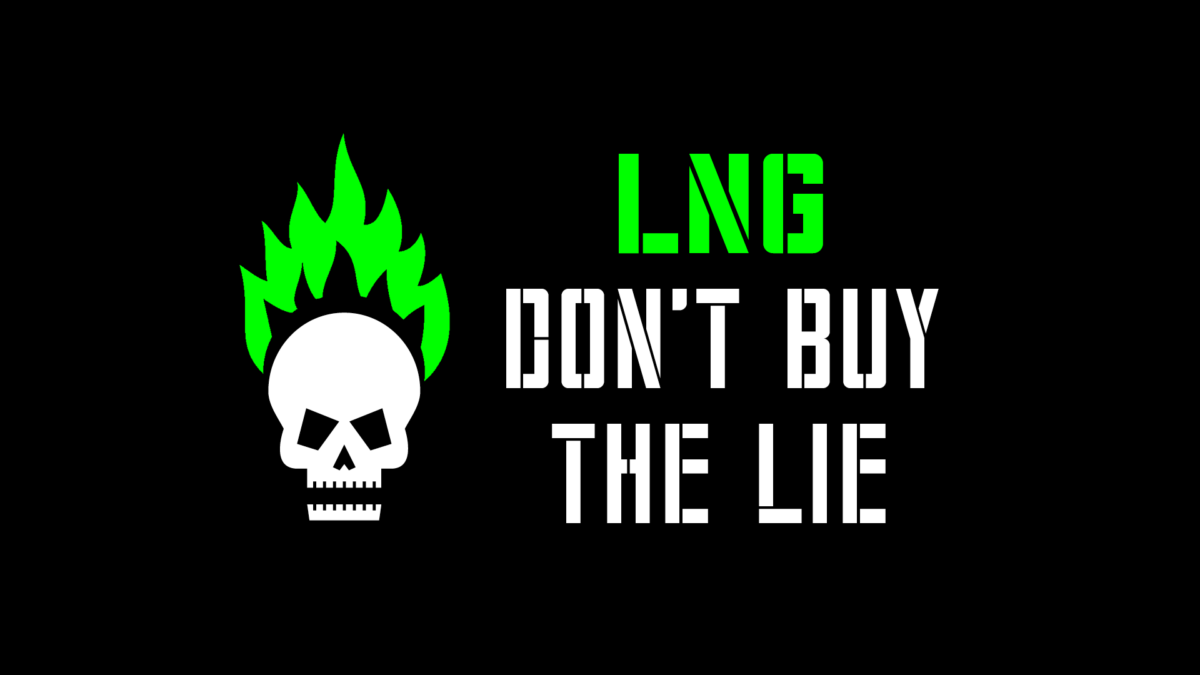
ONLY ACTION COUNTS
The IMO must stop acting on behalf of shipping companies. By repeatedly kicking pollution into the long grass (ignoring scientific evidence against the use of greenwash technologies like Liquid Natural Gas and carbon scrubbers) it has proven itself unfit for purpose.
Add this to the failure of a treaty to protect the High Seas (or the likelihood of a treaty which certainly won’t protect the high seas) isn’t it time for the UN to put its collective hands in the air and declare ‘this isn’t working’? It’s all very well for the UN to make statements like ‘arson of our only home’ but talk is cheap. Stop the pointless talk and geopolitical gaming, tell the truth, sit down afresh and start real change. Call out the companies and governments who are obstructing the saving of the Ocean, and name the implications of what they are trying to achieve. We need the Ocean to thrive again, as the sea dies we die.
Ocean Rebellion demands:
The UN must form a new, transparent, and representative body to govern the Ocean for the benefit of ALL life. This new body must have the restoration and replenishment of the Ocean as its only measure of success. It should replace corporate power with people power. And it should represent the many forms of marine life who actually make the ocean a home.
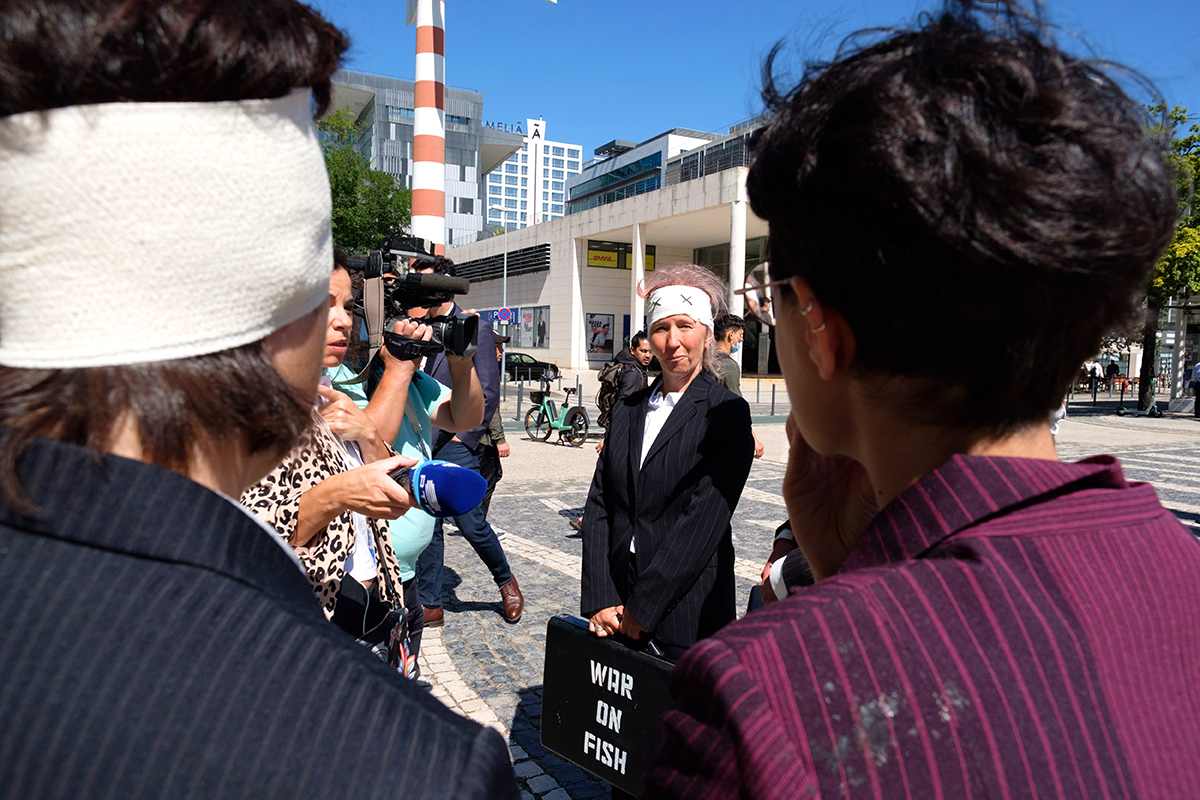
Sophie Miller says:
“Ocean Rebellion has visited the IMO many times, each time with a different issue but all related to mismanagement and fossil fuels. The first time it was Wakashio, the oil disaster that decimated the Mauritian coast. Then it was Fossil fuel lobbying and ties to the Baltic Exchange and fake shipping laws. Next it was HFO and insider influence at the hands of actual representatives like ‘Captain Ian Finlay’. It just goes on – the IMO is useless, what’s the point of them? They don’t even protect seafarers, all they do is greenwash shipping profits”
Suzanne Stallard adds:
“The UN talks a great talk. The International Maritime Organisation and International Seabed Authority, both UN bodies, are unfit for purpose. Both are totally corrupted by industry and both govern the Ocean on behalf of industry. We are living in an age of unprecedented ecological breakdown, the UN must recognise this by governance not just in words. We ask the UN to call out its rogue subsidiaries, more harmful to life on earth than rogue states.”
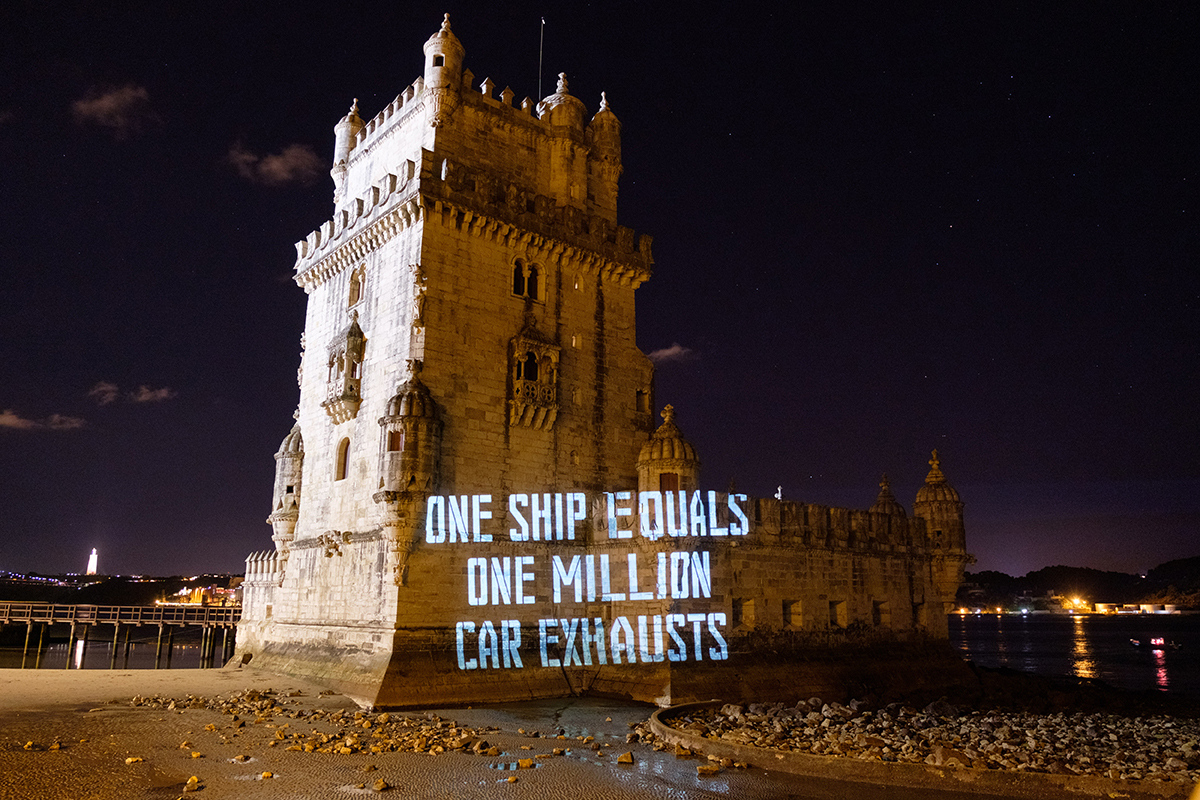
Photos, from top: 1, 2, 3, 5 and 6 João Daniel Pereira, ‘STOP BLACK CARBON’ and ‘ONE SHIP EQUALS…’ Illuminations of the Torre de Belém, Lisbon, during the UN Ocean Conference 2022. 4 (Ocean Rebellion greenwash carbon scrubbers at the IMO HQ) Crispin Hughes.
The fate of the Ocean depends on us all.
We’ll let you know what we’re doing to help.